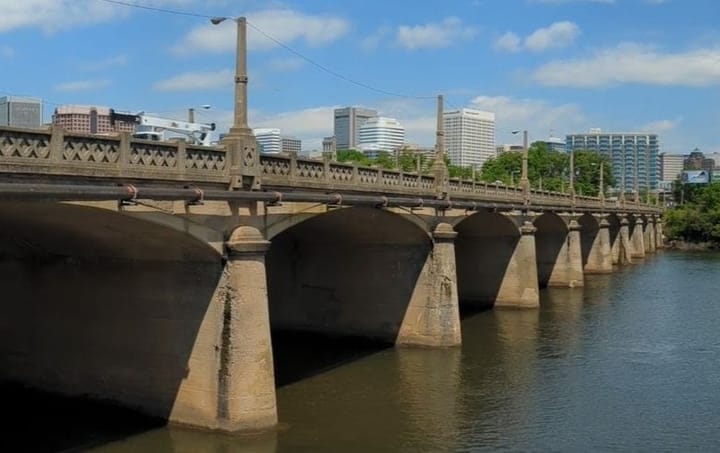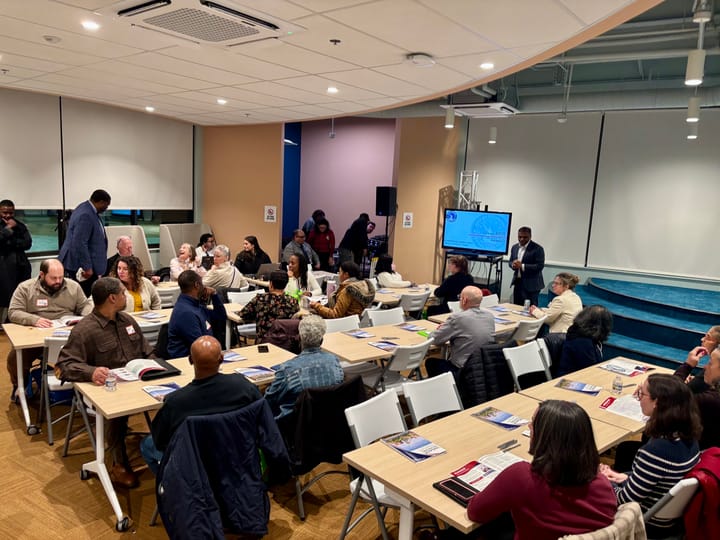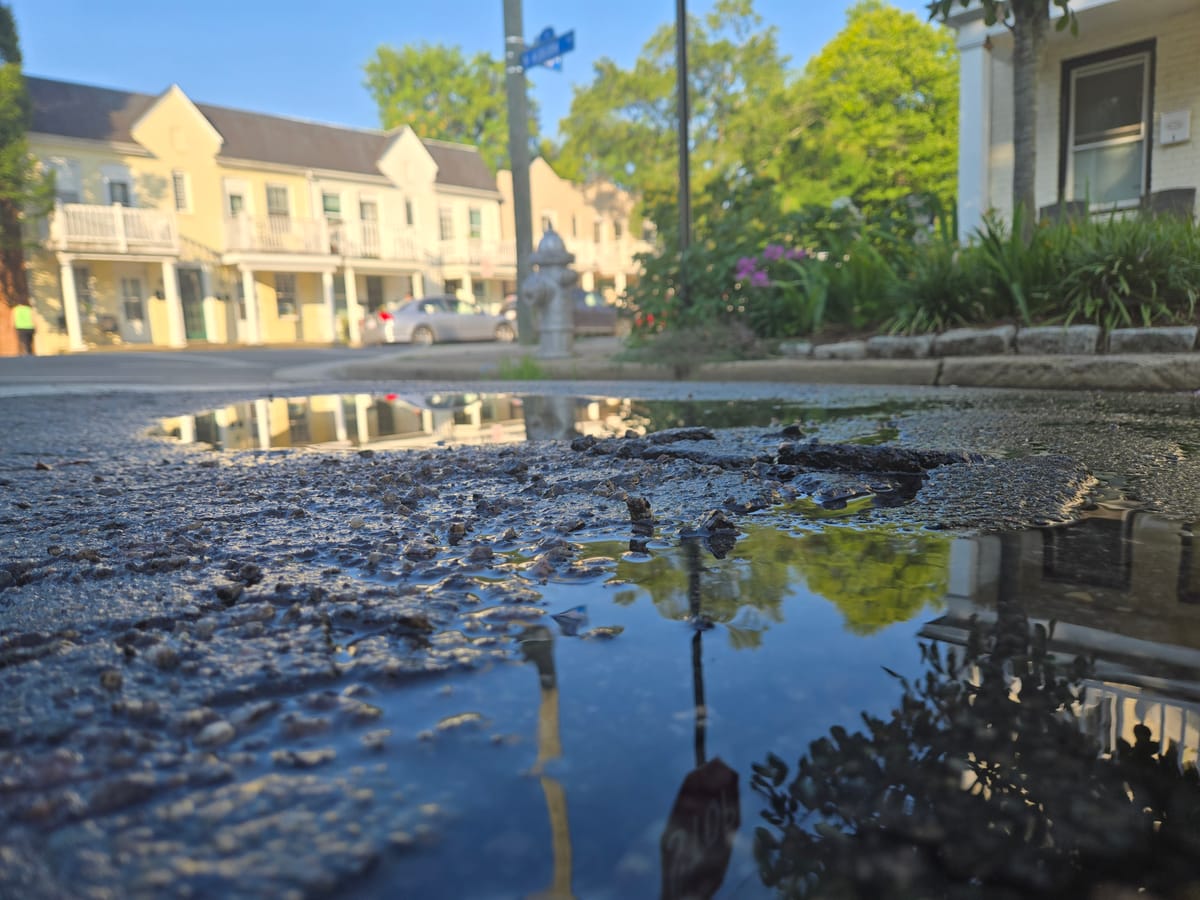
To some callers, RVA311 is the wrong number
This spring, residents near Carytown began to notice a persistent pool of chalky water collecting near the corner of Auburn and Ellwood avenues. The water never went away, even after days of no rain.
Over several months, three different people reported the problem to RVA311, the city’s system designed to answer citizen questions and to respond to non-emergency requests for service.
But none of the three RVA311 requests were routed to the crews assigned to fix what turned out to be a leaking water meter.
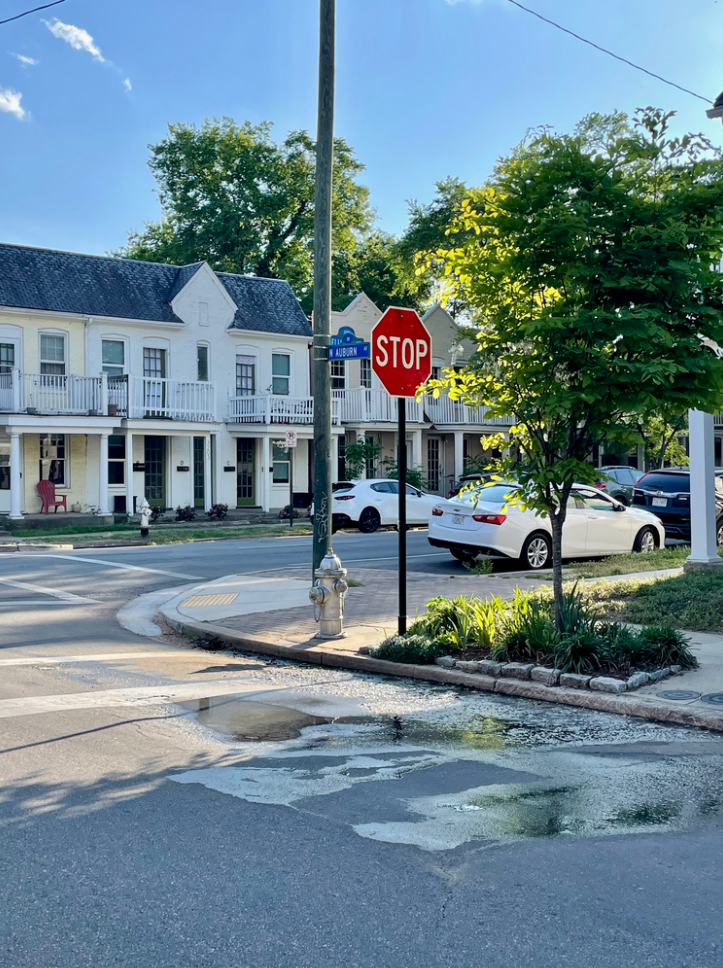
The delayed response on Auburn Avenue reveals a disconnect between the ease by which citizens can report problems and the difficulty the city has in routing some requests to the right department.
From the outside, it’s easy to imagine RVA311 as an all-encompassing customer service system. But it’s simply a wrapper around heavily siloed city services, everything from producing drinking water to administering social service benefits.
“We are the intake,” said Peter Breil, who oversees RVA311. “The departments have teams that respond.”
Last year, the 311 system received 204,000 calls for service, or an average of nearly 17,000 a month. The requests roughly broke down 40 percent for social services, 30 percent for finance and 20 percent for public works.
Breil said about half of the calls can be answered right away. For instance, RVA311 is integrated with the Finance Department so operators can immediately provide questions about a citizen’s tax bills.
After hiring more staff to expand call center hours and launching a RVA311 App last year, the city is now focused on tackling the more difficult challenge of delivering timely service.
In August, the city launched a new initiative that calls for each department to create standard operating procedures to service requests. The goal is to establish expectations of how long it should take each city department to evaluate a request for service and to deliver a solution. City officials call this RFE, or Response Fulfillment Enhancement.
Perhaps no citizen requests are tricker than those related to the city’s aging infrastructure, particularly underground water, gas or sewer lines. Many of these requests require a city employee to visit the site to figure out what is wrong, determine the urgency of the situation and decide which crew should complete the work.
Complicating matters is the fact that most infrastructure tasks are divided between two departments, the Department of Public Utilities (DPU) or the Department of Public Works (DPW).
City citizens who submit infrastructure requests likely are unaware that DPU operates its own customer service system that is completely separate from RVA311.
The slow response to a water leak on Auburn Avenue this spring illustrates how RVA311 requests can fall between the cracks.
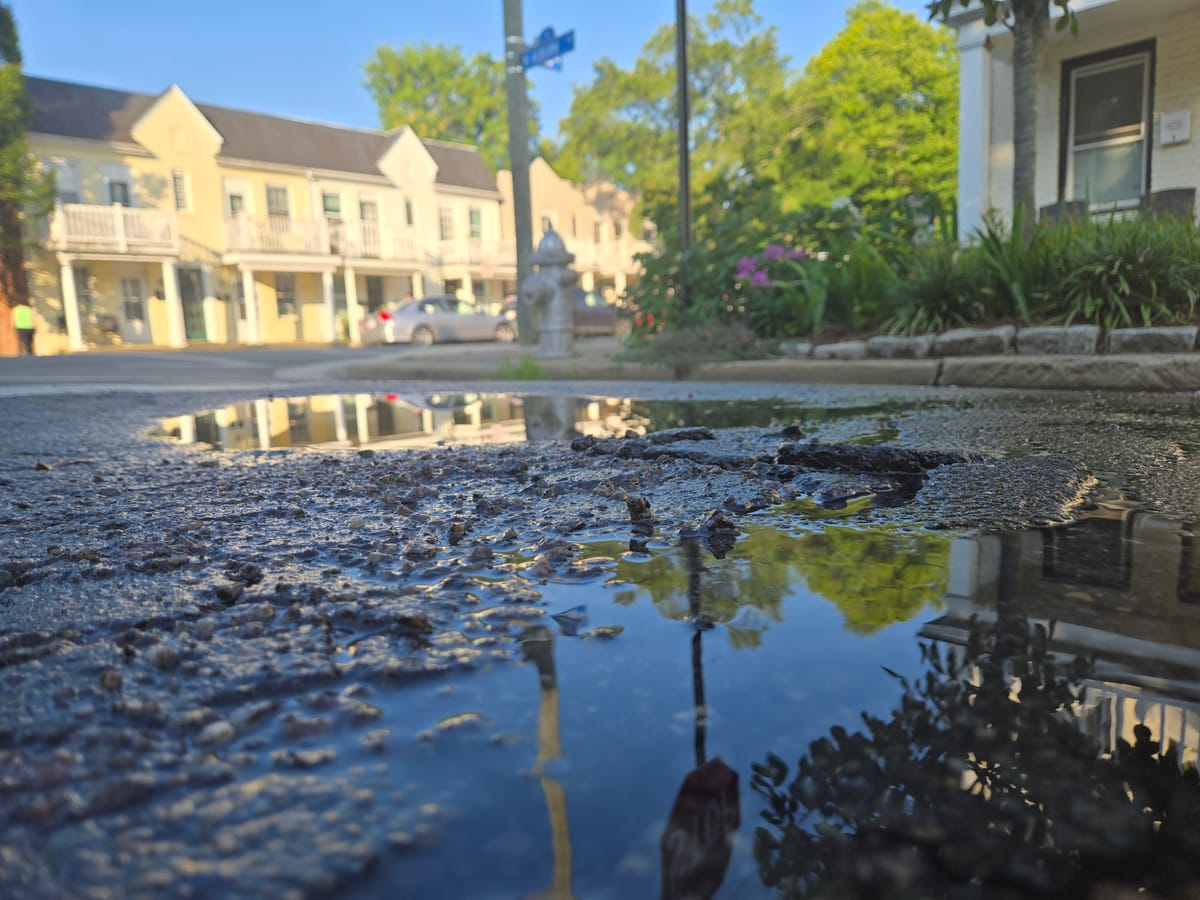
On May 1, someone went online to report the problem in the RVA311 system. The citizen clicked on a “See all request types” and was asked to choose between 13 subject areas such as “Lights, Signs & Signals.” The online RVA311 customer selected “Roads and Alleys,” presumably because the water was on the road.
The citizen was then presented with 11 more specific topics. He chose “Sinkhole,” the only plausible option.
The citizen – apparently adapting to the nomenclature presented – wrote that a “sinkhole” has been forming for two months on a street near his house. “The ground is sinking and there is water coming out of the crack that never dries out. … Hope it’s not a water main issue. Thank you!”
Unbeknownst to the citizen, RVA311 was the incorrect place to report a leaking water meter or water main. Such issues should be reported directly to DPU, which maintains a separate complaint system that uses outdated technology that would be too expensive to integrate with RVA311.
Asked how a citizen could be expected to know this, Breil said the correct path would have been apparent if the person had started the ticket with a search option, instead the option to choose from a list of possible categories.
Nineteen days after the problem was reported, RVA311 marked the ticket “closed,” even though no work had been done to correct the problem. A note in the system said that the issue had been directed to the “correct” department.
Meanwhile, RVA311 received two more requests and the water issue on Auburn. Each time, the complainers unwittingly chose options that ensured the matter went to the wrong department.
“Water is on a different, older system that would not be cost effective to integrate [with RVA311] due to the system being replaced,” Breil said. “As the new system is integrated, DPU will evaluate ways to enhance functionality between the two applications.”
DPU has been working more than a year to modernize its billing system. If the department eventually upgrades its requests for service systems, there’s still no guarantee DPU will be integrated into RVA311. Breil noted that systems integration is expensive, and there currently is no budget for it.
For the folks on Auburn Avenue, the good news is that someone eventually bypassed RVA311 and directly contacted DPU directly. This did the trick. DPU replaced the leaking water meter and the city repaved a small section of blacktop. The work was completed the week of July 21-25.
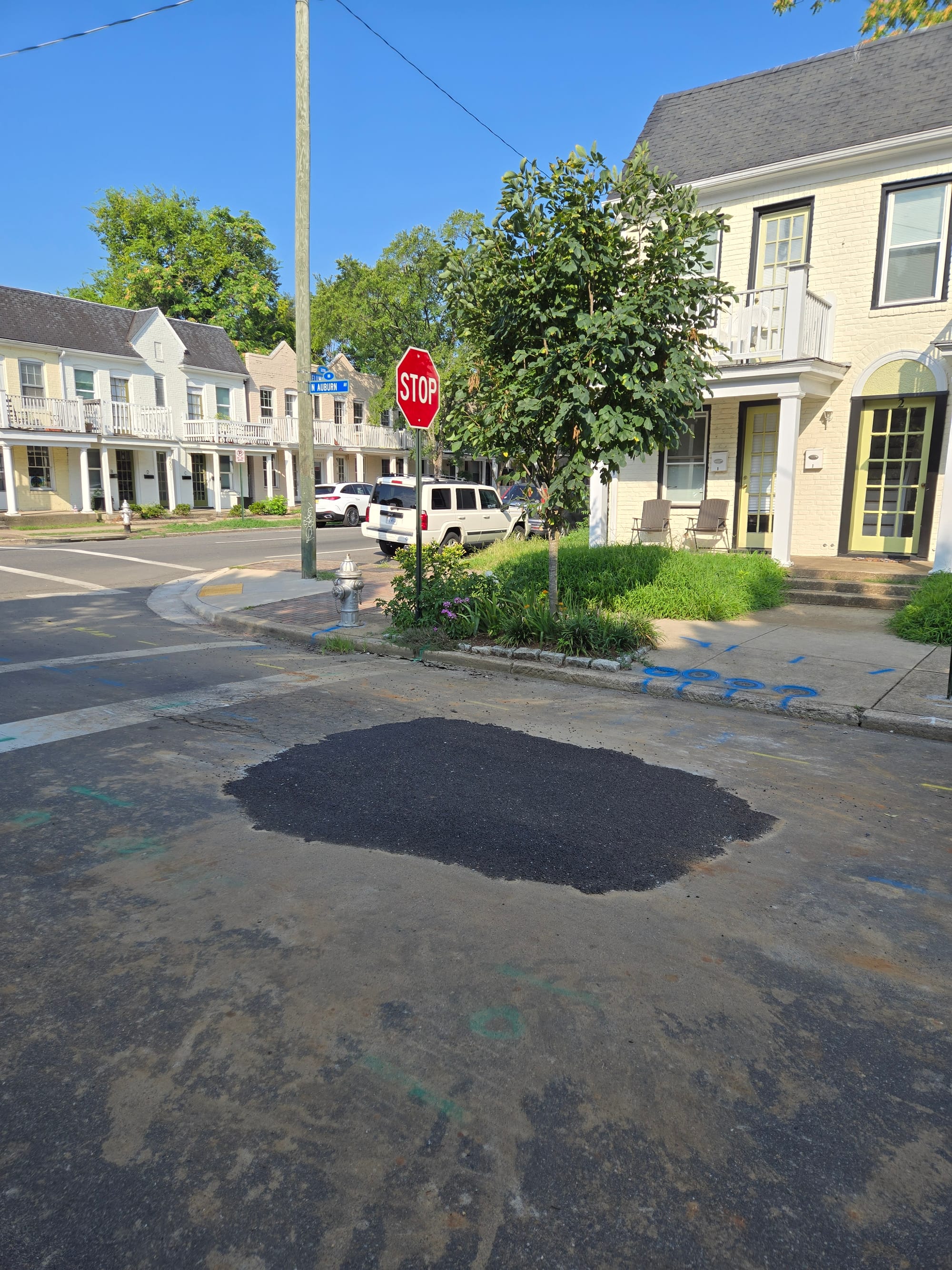
Former City Councilmember Andreas Addison said this example confirmed his critique that RVA311 depends on an unrealistic expectation that citizens that can diagnose a problem and assign it to the correct department.
Addison said many RVA311 calls simply know their car hit a bump or that there’s water standing in their backyard. “We put too much emphasis on citizens knowing what needs to happen, instead of getting someone to the site who knows what should be fixed,” he said.
Addison, who as a city employee worked on the precursor system to RVA311, once proposed training two rapid response squads that could be dispatched around the city to evaluate requests and, if action was warranted, determine the level of urgency and route the ticket to the proper department.
But Addison said the Jones Administration passed on the idea as too expensive and duplicative of other services.
Breil said that rapid response squads would actually slow things down, because they would take eight or ten “seasoned, subject matter experts” out of the ranks of crews that are assigned to the work.
The current RVA311 administration is content to improve customer service by taking small, steady steps. Briel said he was confident that the citywide initiative to require departments to document their operating procedures and establish expected completion dates will improve efficiency and create expectations for speedier customer service.
“If we make something a little better, we’ve won,” Breil said. “Are we making it perfect? No. Are we making progress – absolutely.”
The Richmonder is powered by your donations. For just $9.99 a month, you can join the 1,200+ donors who are keeping quality local news alive in Richmond.
This article has been updated to reflect the correct spelling of Andreas Addison's name.



